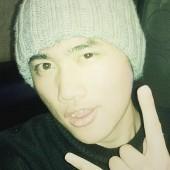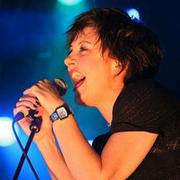Orbital
| 基本信息 | |||
|---|---|---|---|
| 姓名 | Orbital | 别名 | 暂无 |
| 国籍 | 英国 | 出生地 | |
| 语言 | 英语 | 性别 | 组合 |
| 生日 | 星座 | ||
| 身高 | 体重 | ||
如果你1989年正在听电音,想必当年的一曲Chime中电颤音效,会是永世难忘的印象。这正是来自英国的Paul Hartnoll和Phil Hartnoll所创造的奇迹。八十年代末期两人组建了Orbital,先后的Chime,Omen和Satan三只单曲,在89到90年代成为Techno乐界主力作品,在1991年乐队的首张专辑Green Album的诞生,是谁也没有想到,这成就了本世纪最伟大的乐队。截止到2004年令人遗憾的乐队解散时,Orbital已经洋洋洒洒带来了7张乐队创作专辑,缔造了Halcyon,Funky Break,Choice,Lush,Impact等无数历历在耳的经典单曲,成功的将地下Techno音乐推上了舞台,推向全球。最令人称奇的,是在Orbital音乐中,你能够享用到碎拍,House乃至些许Trance的影子,游走在Techno节奏之中,而音效的制作是乐队最引以自豪的,数十种经典节奏音效一直被各个艺人乐队沿用至今。此外摇滚方面Orbital更是表现出色,也是历史上第一支将吉他Solo引用电子舞曲的乐队。虽然2004年乐队宣布解散,但好消息等待了4年终究还是来了。2008年底,Phil Hartnoll宣布Orbital将重新组建,并在乐队成立20周年之时(也就是2009年),登陆著名英国音乐节The Big Chill做复出性演出。“我们这次一起登台并不是出于对过去的怀念,只是时候到了”,Phil Hartnoll说,“一切都准备就绪,之前我曾在The Big Chill上演出过,我在那里当DJ,度过了非常愉快的时光,那真是一个令人称奇的音乐节。明年我们一起演出的时间也很棒,正好是我们成军20周年。”“这当中有15年的时间我们都很忙碌,制作歌曲”,Paul说,“如果想要把这么多年浓缩在90分钟的演出里,那一定要从头至尾都很令人兴奋,让我们为它加入些有趣的元素吧!”Orbital became one of the biggest names in techno during the mid-90s by solving the irreconcilable differences previously inherent in the genre: to stay true to the dance underground and, at the same time, force entry into the rock arena, where an album functions as an artistic statement — not a collection of singles — and a bands prowess is demonstrated by the actual performance of live music. Though Phil and Paul Hartnoll first charted with a single, the 1990 British Top 20 hit Chime, the duo later became known for critically praised albums. The LPs sold well with rock fans as well as electronic listeners, thanks to Orbitals busy tour schedule, which included headlining positions at such varied spots as the Glastonbury Festival, the Royal Albert Hall, and Tribal Gathering.The brothers Hartnoll — Phil (born January 9, 1964) and Paul (born May 19, 1968) — grew up in Dartford, Kent, listening to early-80s punk and electro. During the mid-80s, Phil worked as a bricklayer while Paul played with a local band called Noddy & the Satellites. They began recording together in 1987 with a four-track, keyboards, and a drum machine, and sent their first composition, Chime (recorded and mastered onto a cassette tape for a total production cost of £2.50), into Jazzy Ms pioneering house mix show Jackin Zone. By 1989, Chime was released as a single, the first on Jazzy Ms label, Oh-Zone Records. The following year, ffrr Records re-released the single and signed a contract with the duo — christened Orbital in honor of the M25, the circular London expressway which speeded thousands of club kids to the hinterlands for raves during the blissed-out Summer of Love. Chime hit number 17 on the British charts in March 1990 and led to an appearance on the TV chart show Top of the Pops, where the Hartnolls stared at the audience from behind their synth banks. Omen barely missed the Top 40 in September, but Satan made number 31 early in 1991, with a sample lifted from the Butthole Surfers.Orbitals untitled first LP, released in September 1991, consisted of all-new material — that is, if live versions of Chime and the fourth single Midnight are considered new works. Unlike the Hartnolls later albums, though, the debut was more of a collection of songs than a true full-length work, its cut-and-paste attitude typical of many techno LPs of the time. During 1992, Orbital continued their chart success with two EPs. The Mutations remix work — with contributions from Meat Beat Manifesto, Moby, and Joey Beltram — hit number 24 in February. Orbital returned Meat Beats favor later that year by remixing Edge of No Control, and later reworked songs by Queen Latifah, the Shamen, and EMF as well. The second EP, Radiccio, reached the Top 40 in September. It marked the Hartnolls debut for Internal Records in England, though ffrr retained control of the duos American contract, beginning with a U.S. release of the debut album in 1992.The duo entered 1993 ready to free techno from its club restraints, beginning in June with a second LP. Also untitled, but nicknamed the brown album as an alternative to the green debut, it unified the disjointed feel of its predecessor and hit number 28 on the British charts. The Hartnolls continued the electronic revolution that fall during their first American tour. Phil and Paul had first played live at a pub in Kent in 1989 — before the release of Chime — and had continued to make concert performance a cornerstone of their appeal during 1991-1993, though the U.S. had remained unaware of the fact. On a tour with Moby and Aphex Twin, Orbital proved to Americans that techno shows could actually be diverting for the undrugged multitudes. With no reliance on DATs (the savior of most live techno acts), Phil and Paul allowed an element of improvisation into the previously sterile field, making their live shows actually sound live. The concerts were just as entertaining to watch as well, with the Hartnolls constant presence behind the banks — a pair of flashlights attached to each head, bobbing in time to the music — underscoring the impressive light shows and visuals. The early 1994 release of the Peel Sessions EP, recorded live at the BBCs Maida Vale Studios, cemented onto wax what concertgoers already knew. That summer proved to be the pinnacle of Orbitals performance ascent; an appearance at Woodstock 2 and a headlining spot at the Glastonbury Festival (both to rave reviews) confirmed the duos status as one of the premier live acts in the field of popular music, period.The U.S.-only Diversions EP — released in March 1994 as a supplement to the second LP — selected tracks from both the Peel Sessions and the albums single, Lush. Following in August 1994, Snivilisation became Orbitals first named LP. The duo had not left political/social comment completely behind on the previous album — Halcyon + On + On was in fact a response to the drug used for seven years by the Hartnolls own mother — but Snivilisation pushed Orbital into the much more active world of political protest. It focused on the Criminal Justice Bill of 1994, which gave police greater legal action both to break up raves and prosecute the promoters and participants. The wide variety of styles signalled that this was Orbitals most accomplished work. Snivilisation also became the duos biggest hit, reaching number four in Great Britains album charts.During 1995, the brothers concerned themselves with touring, headlining the Glastonbury Festival in addition to the dance extravaganza Tribal Gathering. In May 1996, Orbital set out on quite a different tour altogether; the duo played untraditional, seated venues — including the prestigious Royal Albert Hall — and appeared on-stage earlier in the night, much like typical rock bands. Two months later, Phil and Paul released The Box, a 28-minute single of orchestral proportions. It screamed of prog rock excess — especially the inclusion of synth harpsichords — and appeared to be the first misstep in a very studied career. The resulting In Sides, however, became their most acclaimed album, with many excellent reviews in publications that had never covered electronic music. It was over three years before the release of Orbitals next album, 1999s Middle of Nowhere. An aggressive, experimental album titled The Altogether emerged in 2001, and one year later Orbital celebrated over a decade together with the release of the retrospective Work 1989-2002. With the release of 2004s Blue Album, however, the Hartnolls announced that they were disbanding Orbital. After the split, Paul began recording music under his own name, including material for the Wipeout Pure PSP game and a solo album (The Ideal Condition), while Phil formed another duo, Long Range, with Nick Smith.
 加载评论内容,请稍等......
加载评论内容,请稍等......













